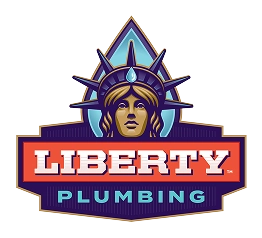As a homeowner, there are few things more frustrating than dealing with a stoppage in your plumbing system. Whether it’s a clogged drain, a backed-up toilet, or a slow-moving sink, stoppages can be a major inconvenience and disrupt your daily routine. In this blog post, we’ll discuss the common causes of stoppages and what you can do to prevent them.
Common Causes of Stoppages
The most common cause of stoppages is simply a buildup of debris in your pipes. Over time, hair, soap scum, food particles, and other debris can accumulate in your drains and pipes, causing them to slow down or become completely blocked. Additionally, flushing items down the toilet that should not be flushed, such as paper towels, feminine hygiene products, and wipes, can also cause blockages.
Another common cause of stoppages is tree roots invading your sewer line. Tree roots are naturally drawn to the moisture in your sewer line, and over time, they can grow into your pipes, causing them to become blocked or damaged.
Preventing Stoppages
The best way to prevent stoppages is to be proactive about maintaining your plumbing system. Here are a few tips to help keep your pipes clear and free-flowing:
Avoid flushing items down the toilet that should not be flushed. This includes paper towels, feminine hygiene products, wipes, and other non-flushable items.
Use drain screens to catch hair and other debris before it can go down the drain. These can be purchased at most hardware or home improvement stores.
Avoid pouring grease and oil down the drain, as they can solidify and clog your pipes over time.
Have your sewer line inspected annually to identify any potential problems before they become major issues.
Consider having your pipes professionally cleaned on a regular basis. This can help to remove any buildup that may be present in your pipes and keep them flowing freely.
Dealing with Stoppages
If you do experience a stoppage in your plumbing system, there are a few things you can do to try to clear it yourself. Here are some DIY tips:
Use a plunger to try to clear the blockage. Be sure to use a plunger specifically designed for the type of fixture you are trying to unclog (i.e., a toilet plunger for a toilet, a sink plunger for a sink, etc.).
Try using a drain snake to remove the blockage. This is a long, flexible tool that can be inserted into your pipes to dislodge any debris that may be present.
Use a natural drain cleaner, such as baking soda and vinegar, to help break down any buildup that may be present in your pipes.
If these DIY methods do not work, it’s best to contact a professional plumber to assist you. They have the tools and expertise necessary to properly diagnose and clear any blockages in your plumbing system.
Stoppages in your plumbing system can be a major inconvenience, but they are often preventable with proper maintenance. By being proactive about maintaining your plumbing system and taking steps to prevent blockages, you can help to ensure that your pipes remain clear and free-flowing. If you do experience a stoppage, try some DIY methods to clear it yourself, but don’t hesitate to contact a professional plumber if you need assistance.

